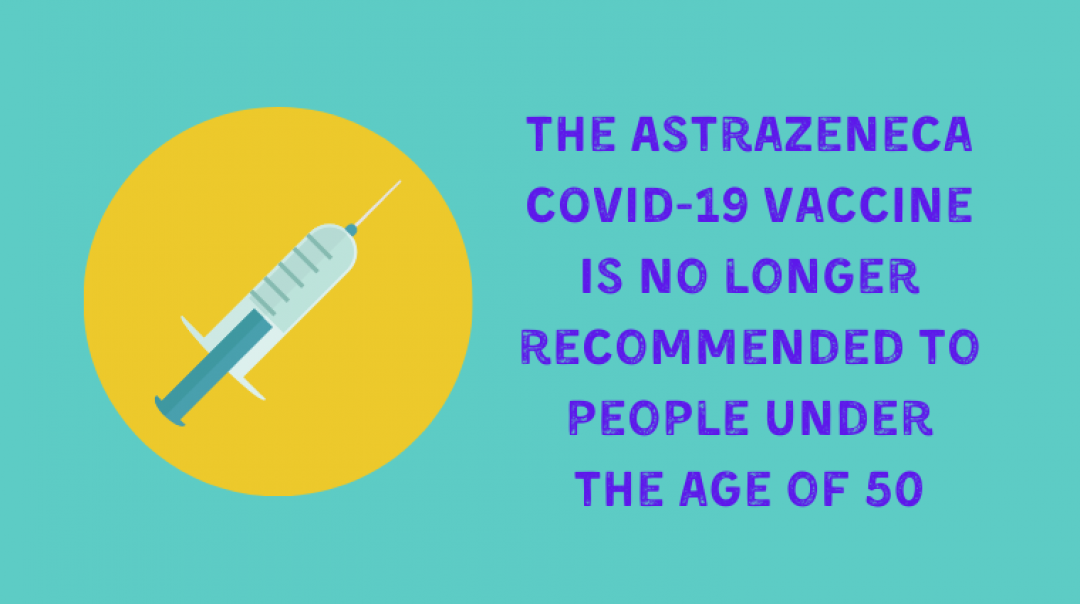
AstraZeneca and changes to the vaccine rollout
Last night, Prime Minister Scott Morrison announced that Australia's COVID-19 vaccination plan will be changed due to concerns about the AstraZeneca vaccine's possible links to a rare but serious side effect involving thrombosis (clotting) with thrombocytopenia (low blood platelet count).
The Astra Zeneca vaccine is no longer recommended to be given to people under the age of 50. The Pfizer vaccine is now the preferred vaccine for under 50s. The Pfizer vaccine was previously designated for use only for people in Phase 1A: aged care residents and workers, disability care residents and workers, quarantine, border, and some frontline health workers. All other Australians in all other phases (including Aboriginal and Torres Strait Islander people) were due to receive the AstraZeneca vaccine. One of the reasons that this will be such a big challenge for the vaccine rollout is that Australia only expected to need 1.4 million doses of the Pfizer vaccine, and 54 million doses of the AstraZeneca vaccine (which can be manufactured in Melbourne). Now, it looks like we will need more Pfizer vaccine than we expected, which may delay the vaccine rollout.
We're expecting a lot of information to come out about this in the coming days. The Australian government is keeping us (and other vaccine providers) up to date, and we'll share information with you as it becomes available.
I'm younger than 50. What do I need to know?
- If you have already had one dose of AstraZeneca vaccine without adverse effects, you should still get your second dose of AstraZeneca as planned.
- If you're under 50 and haven't already received any dose of the AstraZeneca vaccine, in most cases you should wait until an alternative vaccine is available.
- If you're younger than 50 and are currently booked in to get your first dose of the AstraZeneca vaccine, you have two choices: you can cancel your vaccination and wait until the alternative vaccine can be provided, or you can still get vaccinated provided that you have a full consultation with your GP to make sure that the benefits outweigh the risks in your individual circumstances. Informed consent (where you completely understand what you're signing up for) is really important. Provided that this consultation has occurred, we can still provide the AstraZeneca vaccine to people under 50 years old.
- Consider getting the influenza vaccination while waiting for the alternative COVID-19 vaccine to arrive. (Remember that you need a two week gap between any vaccination and a COVID-19 vaccine)
I'm older than 50. What do I need to know?
- The AstraZeneca vaccine remains safe to be given to people aged 50 years and over. When we get any vaccination, we weigh up the benefits of vaccination against the risks of the illness we're trying to protect ourselves from. It's important to remember that COVID-19 is a very serious illness that carries high risks. The potential rare side effects of the AstraZeneca vaccine are a lower risk. Depending on our age, the balance of risks can be different.
- If you have any worries about getting the AstraZeneca vaccine, please talk to your doctor.
Does this change what Danila Dilba is doing?
In some ways, yes; we will no longer be administering the AstraZeneca vaccine to anyone under 50 unless there are very specific circumstances which suggest that for a particular individual, the benefits outweigh the risks. We don't know yet when we might receive alternative vaccines (like the Pfizer vaccine) for people under the age of 50. We'll let you know when we've confirmed this.
We're still going ahead with our vaccination appointments with people who are still eligible. Danila Dilba's main priority in this early stage of the vaccine rollout has already been on our older or more vulnerable clients, and we'll continue to vaccinate those people. People over the age of 50 can still receive the AstraZeneca vaccine.
Getting vaccinated against influenza is still really important, so you can expect to hear from us about flu shots over the coming weeks.
Please continue to watch our website and social media for new information. Talk to your doctor if you have any worries about COVID-19 vaccination.